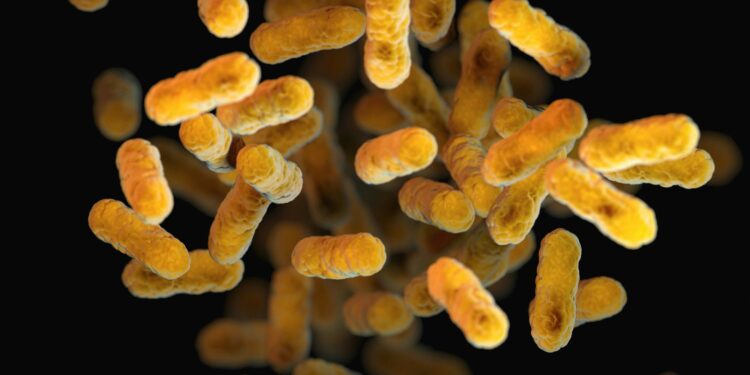In the depths of our digestive tract lives a universe more mysterious than the cosmos—and arguably more crucial to human health.
The gut microbiome—once relegated to obscure corners of gastrointestinal research—has surged into mainstream medical consciousness. Comprising trillions of bacteria, viruses, and fungi, this microbial community doesn’t just influence digestion; it helps regulate immune function, modulate mental health, and may even affect chronic disease risk. As research advances, the microbiome is emerging not as a passive system, but as an organ in its own right—one that medicine is only beginning to understand.
A 2023 review in Nature Reviews Microbiology called the human gut microbiome “the most adaptable and influential biological network in the body,” underscoring its central role in the body’s biochemical symphony.
From Gut Feeling to Scientific Fact
Until recently, gut health was dismissed as a wellness buzzword, popularized by yogurt ads and self-help influencers. But a wave of rigorous research has changed that narrative. The gut microbiome is now implicated in conditions ranging from irritable bowel syndrome (IBS) and obesity to depression and Parkinson’s disease.
One of the most groundbreaking areas is the gut-brain axis—a bidirectional communication network linking the central nervous system and gastrointestinal tract. Through neural, hormonal, and immune pathways, the microbiome sends signals that influence mood, cognition, and emotional resilience.
A 2022 study in the journal Psychiatry Research found that individuals with higher microbial diversity showed lower rates of anxiety and depression. The mechanism? Short-chain fatty acids like butyrate, produced by beneficial gut bacteria, appear to reduce systemic inflammation and promote neurogenesis.
The Immune Connection: Microbes as Guardians
Beyond mental health, the microbiome plays a critical role in immune defense. Roughly 70% of the body’s immune cells reside in the gut-associated lymphoid tissue (GALT), where they are in constant conversation with the microbiota.
This interaction helps “train” the immune system to differentiate between harmless and harmful invaders, potentially reducing autoimmune and allergic conditions. According to a 2023 NIH review, disruptions in microbiome composition—termed dysbiosis—can compromise this balance, increasing vulnerability to infection, chronic inflammation, and metabolic disorders.
Probiotics, Prebiotics, and Personalized Nutrition
With the rise in understanding has come a boom in therapeutic innovation. Probiotics—live microorganisms that confer health benefits—are now among the most studied interventions for microbiome modulation. Products containing strains like Lactobacillus rhamnosus and Bifidobacterium infantis are being tested not just for digestive support but for managing anxiety, eczema, and even post-antibiotic recovery.
But probiotics are only part of the story. Prebiotics—non-digestible fibers that fuel beneficial microbes—are equally vital. Foods rich in inulin (like garlic and leeks) or resistant starches (found in green bananas and oats) help cultivate a diverse and resilient microbiome.
More advanced is the field of “precision probiotics,” which aims to match microbial strains to specific patient profiles. Companies like Viome and DayTwo offer microbiome sequencing and customized nutrition plans based on individual microbial composition, promising a future where dietary recommendations are personalized at the microbial level.
Clinical Implications and Challenges
While enthusiasm runs high, the clinical science of microbiome therapeutics is still maturing. Not all probiotic supplements are created equal, and many have yet to meet the gold standard of randomized, double-blind trials.
Moreover, microbiome signatures vary by geography, diet, and genetics—meaning that interventions may not be universally applicable. As the field advances, researchers are working to define healthy microbiome baselines and develop reliable biomarkers for dysbiosis.
Still, hospitals are already exploring microbiome-based interventions. Fecal microbiota transplantation (FMT), once seen as radical, is now FDA-approved for recurrent Clostridioides difficile infections and under investigation for other inflammatory conditions.
A Paradigm Shift in Prevention
Perhaps the most transformative promise of microbiome science lies in prevention. By focusing on the gut early—via diet, probiotics, and reduced antibiotic overuse—health systems may reduce the burden of chronic disease long before symptoms arise.
Public health campaigns are beginning to reflect this shift. The UK’s National Health Service now includes gut-friendly dietary education in its preventive care guidelines, and U.S. wellness companies are partnering with schools to introduce microbiome literacy at a young age.
Conclusion: Health Begins in the Gut
In a healthcare system dominated by specialization and siloed diagnoses, the microbiome offers a unifying lens. It reminds us that the body is not a machine of isolated parts, but an ecosystem whose harmony determines vitality.
As research continues to unveil the profound influence of our inner microbes, gut health is no longer fringe—it is foundational. And in this revolution, the most important step may not be a new drug or device, but a daily choice about what we eat, how we live, and the microbial universe we choose to cultivate.
















